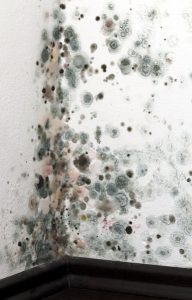
Residents of coastal Florida know that high humidity can cause more problems for a house than making hot days feel hotter. Humidity is also a trigger for mold growth, which can be unsightly and, in the case of black mold, unhealthy for indoor air quality.
Mold is also, unfortunately, an issue for air conditioning systems. It’s one of the easiest places for mold to begin growing, and then a place from where mold spores and icky smells can spread throughout a house.
You may need Tampa, FL, AC repair services to deal with the issues that mold can cause for your AC. We’re here with the basic facts of the situation so you’ll know when to call us—and why!
Mold Strikes at the Evaporator Coil
The place where mold can become the biggest problem for an air conditioner is the evaporator coil. This is the coil in the interior cabinet of the AC where the refrigerant evaporates and draws heat from the air around it, cooling it. It also draws moisture from the air, which then drips down into a condensate drain. The water along the coil makes it a prime spot for mold development, especially if the humidity is extremely high.
A Moldy Evaporator Coil Creates Trouble
Mold is never good (except in cheese cultures), and it’s a particular problem on the evaporator coil because it creates a layer of insulation along the coil. This makes it harder for the coil to draw heat from the air. The air conditioner’s energy efficiency will suffer because of this, and the cooling around the house may suffer as well.
There is also the issue of toxic mold spores. If black mold grows on the coil, it will send harmful spores all around the house—after all, this is where all the air from the blower must move before it enters the rest of the ventilation system.
Finally, mold on the coil creates “dirty sock syndrome.” I.e. a foul odor like, well, dirty socks that spreads around the house. If you detect this odor, you’ll know you’ve got a mold problem in the AC.
Mold in the Condensate Drain
Mold may also grow in the condensate drain that removes water from the AC to the outside of the house. If this occurs, the drain will clog, the pan will overflow, and the AC will flip an overflow switch that will shut down the system.
Mold Solutions
Can you clean off the mold yourself if that’s the trouble? No, because correctly removing mold from the evaporator coil or the drain requires professional cleaning. Trying to clean the coil on your own can end up damaging the coil—you can’t just spray cleaning fluid onto it and wipe it off with a rag. The same goes for pouring cleaner or bleach down the drain. If you suspect you’ve got mold giving your AC a tough time, let our HVAC technicians take care of it. We’re experienced with handling the specific issues the local climate can create for ACs.
The A/C Guy of Tampa Bay Inc. serves our Tampa Bay family with integrity and honor. Trust us for your AC repair needs.

